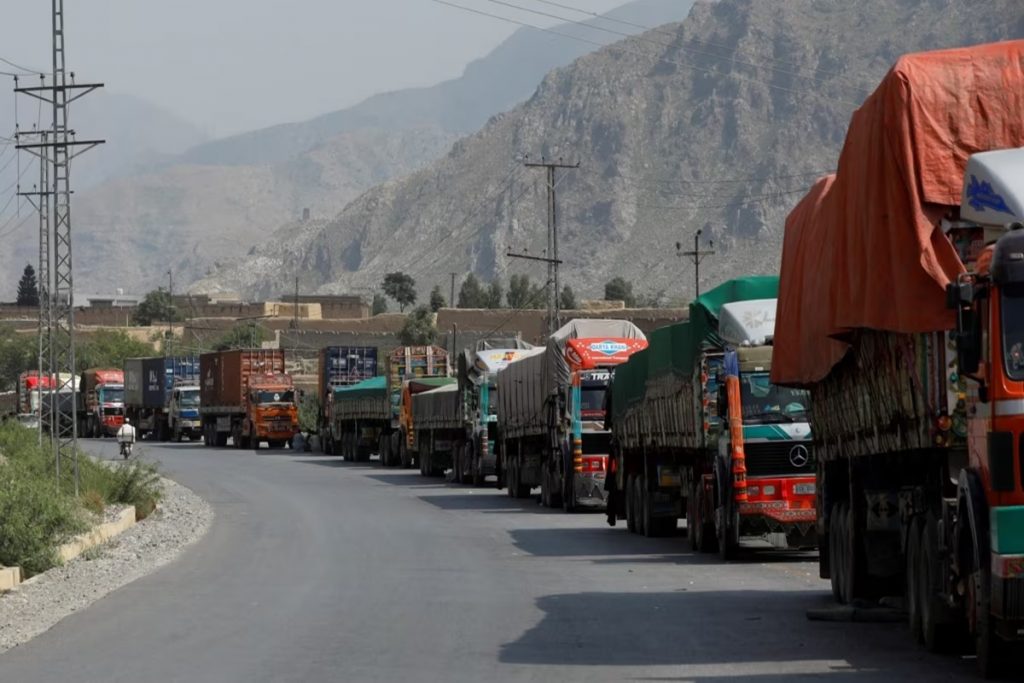
At the border checkpost
by Shah Khalid 13 September 2023
Introduction
Tensions between Pakistan and the Taliban administration have flared up once again, as an incident involving the construction of an “unlawful structure” near the border led to the closure of the crucial Torkham border crossing. This recent clash has left hundreds of trucks stranded with goods and thousands of travelers in limbo. As both sides exchange accusations, it is imperative to delve into the details of this border dispute and its implications for regional stability.
The Torkham Border Crossing Closure
The Torkham border crossing, serving as a vital transit point between Pakistan and Afghanistan, has remained closed since Wednesday, following a heated exchange of fire between forces from both nations. The incident has raised concerns over the disruption of trade and travel along this crucial route, which connects Peshawar in Pakistan to Jalalabad in Afghanistan.
The Taliban’s Perspective
The Taliban administration’s foreign ministry criticized the closure of the border and contended that Pakistan’s security forces had fired upon its troops while they were repairing an old security outpost near the border. They claim that their actions were within the realm of sovereignty and intended to bolster border security.
Pakistan’s Counteraccusations
In response, Pakistan’s foreign ministry spokesperson, Mumtaz Zahra Baloch, refuted these claims and shed light on the underlying issue. According to Pakistan, the incident was not solely about the exchange of fire but was linked to the construction of an “unlawful structure” by the Taliban-led Afghan administration within Pakistani territory. This, Pakistan argues, constituted a violation of its sovereignty.
The Escalation of Violence
The situation took a dangerous turn on September 6th when, instead of seeking a peaceful resolution, Afghan troops allegedly resorted to indiscriminate firing. This firing targeted Pakistani military posts, causing damage to the infrastructure at the Torkham Border Terminal. Most alarmingly, the exchange put the lives of both Pakistani and Afghan civilians at risk. This escalation of violence has escalated concerns on both sides of the border.
Decades-Long Border Disputes
Disputes linked to the 2,600-kilometer (1,615-mile) border have plagued Pakistan and Afghanistan for decades. The porous and poorly demarcated border has been a constant source of tension, with both nations grappling over territorial claims and security concerns. This latest incident only adds to the long list of disputes that have hindered peaceful relations between the two neighboring countries.
Pakistan’s Concerns Over Militant Attacks
Pakistan’s foreign office used this incident as an opportunity to reiterate its longstanding concerns regarding rising militant attacks that emanate from Afghan soil. It called upon the Taliban authorities to take concrete measures to prevent its territory from being used as a sanctuary for militants targeting other nations. Pakistan has long contended that militants find refuge in Afghanistan and launch attacks on Pakistani soil, posing a significant security threat.
The Taliban’s Response
The Taliban administration has consistently denied allegations that it allows Afghan soil to be used for militancy. They maintain that Pakistan’s security concerns are an internal matter for the Pakistani government to address. This ongoing dispute over militancy and cross-border attacks underscores the need for both nations to engage in constructive dialogue and cooperation to eliminate the menace of terrorism.
Conclusion
The recent border clash between Pakistan and the Taliban administration at the Torkham border crossing has once again highlighted the fragility of relations between these neighboring nations. The closure of this crucial transit point disrupts trade and travel, impacting both economies. It is imperative that both sides exercise restraint and seek peaceful solutions to their disputes. Additionally, addressing the issue of militancy and cross-border attacks is of paramount importance, as it threatens the security and stability of the entire region. It remains to be seen how this latest episode will be resolved and whether it will lead to greater cooperation or further exacerbate tensions along the Pakistan-Afghanistan border.
